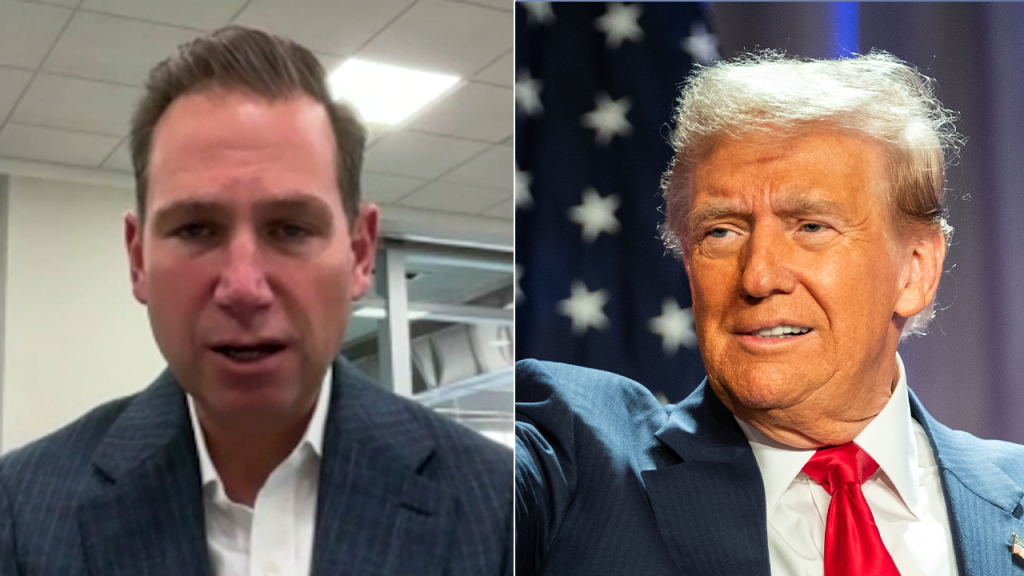Paragraph 1: A Christmas Surprise Appointment
Just five days before Christmas 2024, President-elect Donald Trump announced his intention to nominate Brian Burch as the United States Ambassador to the Holy See, commonly known as the Vatican. This announcement carries significant weight, given the Vatican’s status as the epicenter of the Roman Catholic Church, a faith practiced by approximately 52 million Americans. Burch, currently the president of CatholicVote, a prominent conservative Catholic activist group, brings a strong conservative voice and a history of staunch support for Trump to this potentially influential role.
Paragraph 2: The Significance of Catholic Swing Voters
Trump’s decision to appoint Burch underscores the critical role Catholic voters played in his resounding 2024 election victory. Trump publicly acknowledged Burch’s contribution to securing this historic level of Catholic support, claiming to have garnered more Catholic votes than any previous presidential candidate. This dramatic shift in Catholic voting patterns towards Trump marked a significant departure from previous elections and was a key factor in his unexpected landslide win. This appointment can be interpreted as both a reward for Burch’s efforts and a strategic move to solidify the crucial Catholic voting bloc within the Republican party.
Paragraph 3: Burch: A Devout Catholic and Trump Loyalist
Brian Burch, a father of nine, has been a vocal advocate for conservative Catholic values and a dedicated supporter of Donald Trump. His organization, CatholicVote, notably issued its first-ever presidential endorsement in favor of Trump during the 2024 election cycle. Trump’s announcement highlighted Burch’s devotion to his faith, his large family, his leadership within CatholicVote, and his effectiveness in mobilizing Catholic voters. This emphasis on Burch’s personal characteristics, particularly his faith and family values, likely aims to resonate with the values held by many Catholic voters.
Paragraph 4: Burch’s Response and Vision for the Role
Following the announcement, Burch expressed his gratitude and humility on social media platform X (formerly Twitter), attributing the nomination to divine providence. He acknowledged the influence of his late father, who instilled in him a deep love for both the Church and the United States. Burch emphasized the importance of the relationship between the U.S. and the Catholic Church, highlighting the Church’s global influence and its relevance to American interests. He pledged to work with leaders within both the Vatican and the incoming Trump administration to uphold human dignity and the common good, expressing anticipation for the Senate confirmation process.
Paragraph 5: CatholicVote’s Endorsement and Burch’s Accomplishments
CatholicVote, the organization Burch leads, expressed immense pride in his nomination, emphasizing its symbolic significance for the influence of Catholics in the United States. The group highlighted Burch’s leadership in campaigns addressing issues such as violence against Catholic churches and alleged government overreach targeting Catholics and pro-life advocates. These issues resonate strongly within conservative Catholic circles and likely contributed to the organization’s support for Trump. They also emphasized his personal commitment to family life, portraying him as a champion for traditional family values, further aligning his image with the values espoused by many within the Catholic community.
Paragraph 6: The Catholic Presence in the New Trump Administration and the Road Ahead
The incoming Trump administration is poised to feature several prominent Catholics in key positions, including Vice President JD Vance, Secretary of State nominee Marco Rubio, Health and Human Services Secretary nominee Robert F. Kennedy Jr., and border czar Tom Homan. This concentration of Catholic officials, alongside Burch’s potential appointment as Ambassador to the Holy See, suggests a deliberate effort by the Trump administration to engage with and appeal to the Catholic community. Burch’s nomination, however, is contingent upon Senate confirmation, a process that could potentially face political challenges given the often-contentious nature of ambassadorial appointments. The Senate confirmation hearings will undoubtedly provide a platform for scrutiny of Burch’s views and qualifications, potentially sparking debate on the intersection of religion, politics, and international diplomacy.

